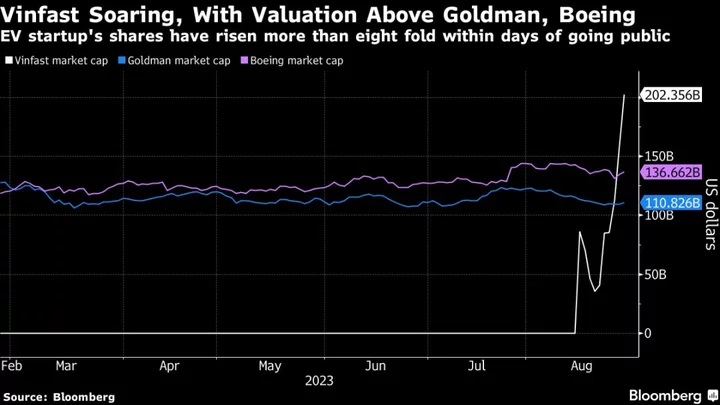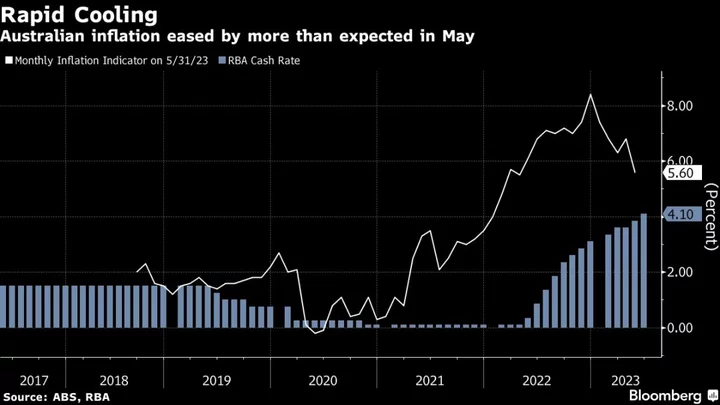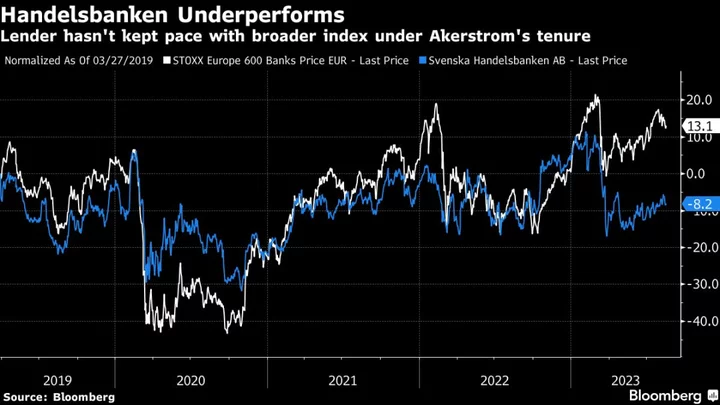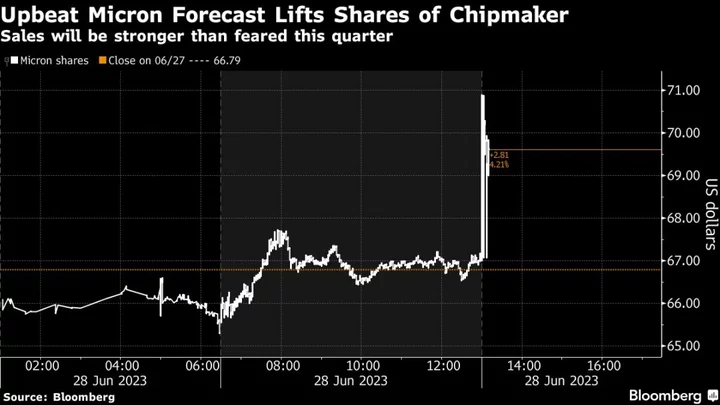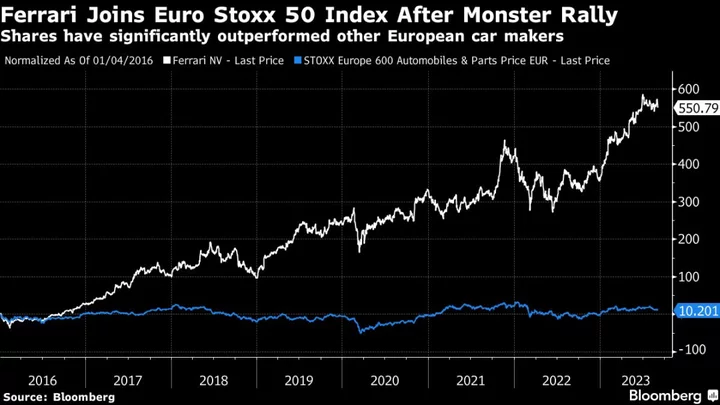Yverdon Sport FC is not a household name in European football, but Jamie Welch is determined to make his purchase of the Swiss club earlier this year the start of something bigger.
The former Credit Suisse banker turned Houston oil trader sees his purchase of Yverdon, a scrappy upstart, which just won promotion to the top-tier Swiss Super League this year, as a stepping stone to buying other undervalued clubs.
“We are looking at other clubs” elsewhere in Europe, and envision a “multiclub platform, which is really what we’re trying to create,” Welch said in a recent interview from the Houston headquarters of his New York-listed Kinetik Holdings Inc. He says talks with one or two clubs are more advanced but no deal is likely in the next 30 days.
Yverdon, a modest town of 30,000, is just over an hour’s drive but is a long way from the financial hub of Geneva. The club plays in the town’s modest 4,500-seat municipal stadium, which sits less than 200 meters from Lake Neuchatel, making it one of the smaller but arguably most scenic settings of any stadium in the Swiss Super League.
Welch, a native of Australia, is the lead investor in a group that bought a 90%-stake in the club in June for an undisclosed amount, with help from 20 investors who each had to commit at least $100,000 to the investment. Renovations to add new lighting, security and other upgrades that extended into the late summer meant the team played its first home games on the road. Any discussions on adding capacity will have to wait till the 2024-2025 season, says new club president Jeffrey Saunders, who is among the investors.
Welch says his goal is to buy up majority stakes and build something — albeit much smaller — “a microcosm” as he put it — akin to the company that controls Manchester City. The English club is the flagship for City Football Group, which includes 11 other smaller clubs around the world from which it draws scouting intelligence and players. The multiclub ownership model has grown in popularity as a way of developing stars of the game without the need for hefty transfer fees.
The immediate priority for Welch and Saunders, who ran Portuguese club Estoril Praia for four years and secured its promotion, is staying up in the top Swiss league. Six games into the season, Yverdon sits a solid seventh out of 12 teams in the Swiss Super League and on Sunday upset perennially top-ranked FC Basel, who make regular appearances in the Champions League.
After a spate of signings over the summer, the “player payroll we now have, we think, is designed to make us competitive and we think we’ve been able to source some great talent,” said Welch.
While deals like 777 Partners LLC’s agreement to buy Everton FC in the English Premiership earlier this month make headlines, other American firms are buying up smaller clubs in Europe more quietly. Pacific Media Group LLC, co-founded by Florida-based Paul Conway, now has a stable of clubs including AS Nancy of France, Swiss club FC Thun and KV Oostende in Belgium. Saunders himself developed Blackstone executive David Blitzer’s multiclub strategy to acquire stakes in six teams across Europe including Estoril, FC Augsburg in Germany and ADO Den Haag in The Netherlands.
Welch says his immediate goals sit squarely in that category. “This is not Man City,” he jokes. That club’s purchase by Abu Dhabi investors in 2008 for a reported £200 million, triggered a spending spree that secured Manchester City the Premiership title four years later.
Switzerland, which has qualified for the last five World Cups, has achieved success internationally. But investment in its domestic league has lagged, with limited broadcast revenue to match, and that needs to change, says Saunders.
“Why are Belgium’s first division broadcast revenues at a much higher clip than Switzerland’s?” he asks. “Better broadcast deals bring more attention to the league, which bring more attention to the teams. It’s this general growing of the Swiss brand that’s needed.”



